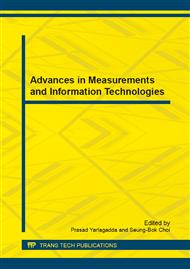p.345
p.349
p.353
p.357
p.363
p.367
p.372
p.377
p.382
A Hybrid Intelligent Algorithm for Fuzzy Programming Problem under Credibility Theory
Abstract:
Based on the credibility theory, this paper is devoted to the fuzzy programming problem. The expected-value model of fuzzy programming problem is provided under credibility theory. For solving the fuzzy programming problem efficiently, Latin Hypercube Sampling, fuzzy simulation, Support Vector Machine and Artificial Bee Colony algorithm are integrated to build a hybrid intelligent algorithm. The proposed method has excellent consistency and efficiency in solving fuzzy programming problem, and is particularly useful for expensive systems.
Info:
Periodical:
Pages:
363-366
Citation:
Online since:
February 2014
Authors:
Price:
Сopyright:
© 2014 Trans Tech Publications Ltd. All Rights Reserved
Share:
Citation:


